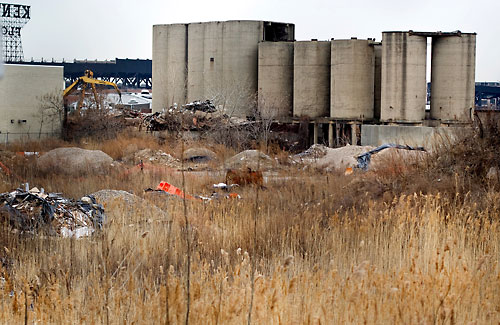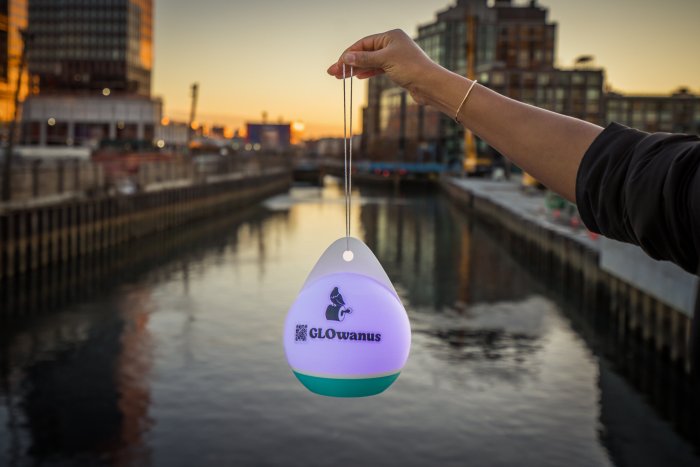The toxic hole where Whole Foods should be will be decontaminated by April — but it won’t necessarily house the grocery store, an environmental official revealed on Monday night.
John Bogdanski, the top dog in charge of eliminating contamination at the Gowanus Canal-side site at Third Avenue and Third Street, told Community Board 6’s environmental committee that the long-awaited clean-up began last week and that soil excavation would start next week.
But Bogdanski, an environmental consultant for Whole Foods, stopped short of promising that a grocery store will be built once the site meets New York State environmental standards.
“Everything I know is that Whole Foods is committed to building on that site,” said Bogdanski. “Still, there is always the option to sell the property.”
But Bogdanski noted that since the site is being cleaned as part of the state’s brownfields program, it is in Whole Foods’ interests not to flip the site to another developer.
“The [clean-up] tax credits pay over the course of 10 years,” Bogdanski said. “If the site is sold, those tax credits move with the land [to the new owner].”
But don’t get too excited about having easy access to Whole Foods’ overpriced and organic fruits and vegetables — the grocer is still looking for partners to develop the site, a search that began in 2008.
The Department of Environmental Conservation has said previously that the clean-up is expected to be done in conjunction with construction of a new grocery store.
But now, instead of a building, two feet of soil will be placed as a cap on the decontaminated site.
The work that remains to be done involves removing contamination from certain areas that are as deep as 14 feet, then dumping the filthy dirt in — insert ironic joke here — New Jersey. Three underground tanks that were once used for oil will also be extracted.
This entire process began in 2005, when Whole Foods started cleaning up a site that suffered the consequences of a lumber yard, an auto repair shop, and an oil company dating back to the late 1800s.
Similar sites dot the entire Gowanus Canal zone, which the city hopes to turn into a residential and manufacturing community, but the federal government hopes to designate as a Superfund site. If so, several developers have said they would not build in the area because of the stigma associated with the word “Superfund.”




















